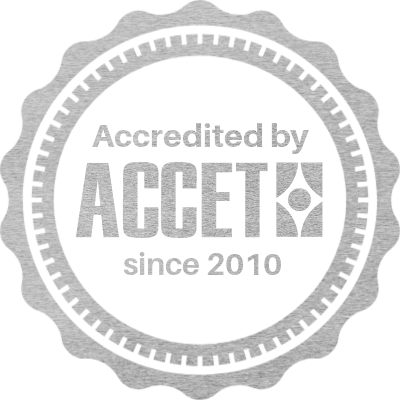
If you’re entertaining a new career, odds are you’re less than satisfied with your current work. Whether it’s pay, stability, or purpose, something new is calling you. While this can certainly be exciting, many of us feel overwhelmed and intimidated by change, especially if it’s a big transition like going to school for a new career! While you might feel alone in this, it’s a completely normal feeling that many students, HMC students alike, have navigated to pursue their goals.
Assessing the Need for Change:
The first step in this transformative process is an honest self-assessment. Reflect on your current career, identifying aspects that no longer fulfill you or align with your long-term goals. Consider your passions, skills, and the industry trends that spark your interest. This introspective phase serves as the foundation for a well-informed decision.
Research and Education:
Once you’ve identified your desired career path, thorough research is key. Understand the range of opportunities in one field versus another. For example, the medical field offers numerous work settings and roles. Additionally, it has been consistently growing over the years, meaning it presents more career opportunities than other industries.
Investigate the qualifications, certifications, or degrees required for the new field. Consider pursuing education or training programs that align with your goals. Many universities and online platforms offer flexible learning options, allowing you to balance education with existing commitments.
Building a Support System:
Navigating change is easier with a strong support system. Seek guidance from mentors, industry professionals, or career advisors who can offer insights and advice. Additionally, discussing your decision with friends and family provides emotional support, reinforcing your commitment to the journey ahead. Your school most likely has had graduates in a very similar position to you, so don’t hesitate to reach out to your institution’s staff for advice on how alumni navigated their transitions.
Managing Uncertainty:
Uncertainty is a natural part of any career transition. Embrace it as an opportunity for growth rather than a roadblock. Develop a flexible mindset, acknowledging that unexpected challenges may arise. Cultivate resilience by focusing on the skills and knowledge you are gaining, viewing each obstacle as a stepping stone toward your ultimate goal.
Taking the Leap:
Once you’ve completed your education and skill development, it’s time to take the leap. Craft a compelling resume and cover letter that highlight your newfound expertise. Leverage your network for job opportunities and informational interviews. Remember, the decision to change careers and go back to school is a courageous one; have confidence in your abilities and the journey you’ve undertaken.
Making the decision to change careers and pursue education is a transformative step toward a more fulfilling and purpose-driven professional life. While the path may be uncertain, navigating risk becomes a skill in itself. By approaching the process strategically, embracing change, and staying resilient in the face of uncertainty, you’re not just changing careers; you’re crafting a future that aligns with your passions and aspirations. If you want more for yourself, change will be necessary eventually. When in doubt, don’t sell yourself short!





